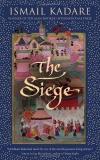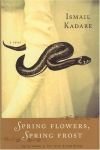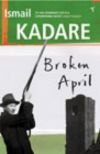
Aprilie spulberat este o nuvelă scrisă de multi-premiatul scriitor albanez, Ismail Kadare. Publicată în 1978, reunește patru dintre prozele anilor ’70 - ’80: Aprilie spulberat, Cine a adus-o pe Doruntina, Mesagerul tristeții și Comisia serbării. Apărute în Albania în urmă cu mai bine de două decenii, cele patru proze …
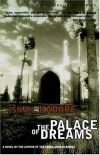
A sinister totalitarian ministry called the Palace of Dreams recruits Mark-Alem to sort, classify, and interpret the dreams of the people in the empire, seeking the ""master-dreams"" that give clues to the empire's destiny. 10,000 first printing.

The Three Arched Bridge is a 1978 novel by Ismail Kadare. The story concerns a very old Albanian legend written in verses, namely "Legjenda e Rozafes" The book differs heavily from the original legend as the legend calls for a castle that is being built, not a bridge.
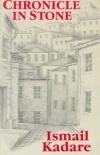
Chronicle in Stone is a novel by Ismail Kadare. First published in Albanian in 1971, and sixteen years later in English translation, it describes life in a small Albanian city during World War II. Translated by Arshi Pipa, an Albanian émigré who lived in the United States, the book was initially published in English …

Two Irish-American scholars from Harvard journey to Albania in the 1930s with a tape recorder (a 'new fangled' invention) in order to record the last genuinely oral epic singers. Their purpose, they say, is to show how Homer's epics might have been culled from a verbal tradition. But the local Governor believes its an …
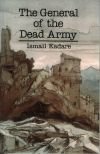
The General of the Dead Army is a 1963 novel by the Albanian writer Ismail Kadare. It is the author's most critically acclaimed novel. It is noted that Kadare was encouraged to write the book by Drago Siliqi, literary critic and director of the state-owned publishing house Naim Frashëri.

 English
English Español
Español Deutsch
Deutsch

